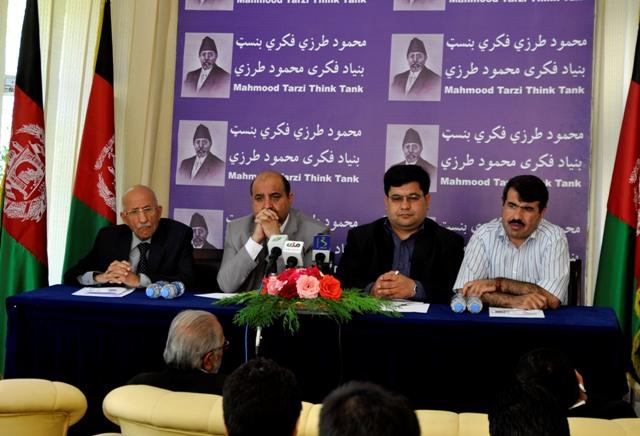KABUL until the end of 2014, when foreign combat troops are scheduled to leave the country, analysts predicted on Sunday.
Islamabad continues to stick to strategy of exploiting religious and cultural values in an attempt to achieve its “nefarious designs” in Afghanistan, they alleged, saying there was little hope of change in its policy.
During a visit to the neighbouring country last month, President Hamid Karzai won assurances from Pakistan’s new political leadership, including Prime Minister Nawaz Sharif, that they would throw their weight behind efforts at stabilising Afghanistan.
But political commentators Ghulam Jilani Zwak, Abdul Rashid Waziri and Hasht-i-Sobh Editor Shah Hussain Murtazavi took a dim view of Pakistan’s commitments during a discussion arranged by the Kabul-based Mahmood Tarzai think-tank.
Although Pakistani leaders realised the crisis in Afghanistan is detrimental also to them, their military establishment did not seem to grasp the reality, Zwak believed.
“Pakistan’s actions don’t reflect any real shift in its policy. Pakistan hasn’t taken a single step that vindicates its desire for an end to the conflict in Afghanistan. There is no concrete sign of Islamabad having stopped viewing Kabul as an area of influence,” he remarked.
He alleged Pakistan wanted to use the Taliban it freed after Karzai’s trip for its own benefit in the future. But sooner or later, growing support for Talibanisation would force the neighbouring country to alter its policy, the analyst said.
Zwak opined Islamabad would reassess its stance after Afghanistan’s presidential and provincial council elections, scheduled for April 2014, when the NATO-led combat mission would also come to an end.
He asked the Karzai administration to focus on expanding the network of religious education institutes within the country and thereby obviate the need for Afghans to seek admissions to the army-controlled Pakistani seminaries.
Murtazavi accused Pakistan of clinging to its dual Afghan policy of aiding the Taliban on the one hand and supported Afghan-managed peace efforts on the other. Its role in the peace drive must be visible and convincing, he stressed.
However, he claimed there had been a noticeable spike in insurgent attacks across Afghanistan since the high-profile presidential visit. He shared the impression that Pakistan was waiting for next year’s elections.
Murtazavi urged the government to muster up religious scholars’ support for countering Pakistan’s propaganda about the presence of foreign troops on this side of the Durand Line and concentrate on promoting religious education.
For his part, Waziri said Pakistan’s foreign policy was framed and implemented by the military, not civilian leaders. There was no likelihood of any change in the military mindset in the immediate term, he argued.
Exploiting religious scholars’ decrees, Pakistan had been sending fighters for jihad in Afghanistan, he charged. The government should pay greater heed to promoting religious education and training scholars to prevent Pakistan’s meddling, he concluded.
mud
Visits: 11









GET IN TOUCH
NEWSLETTER
SUGGEST A STORY
PAJHWOK MOBILE APP